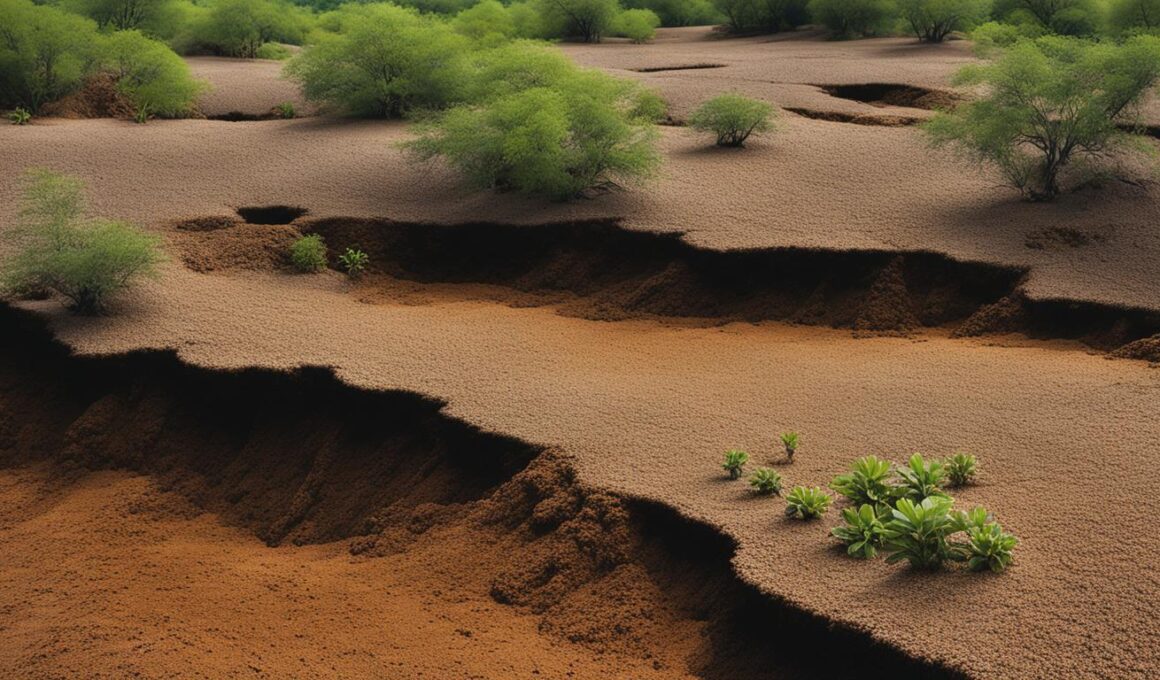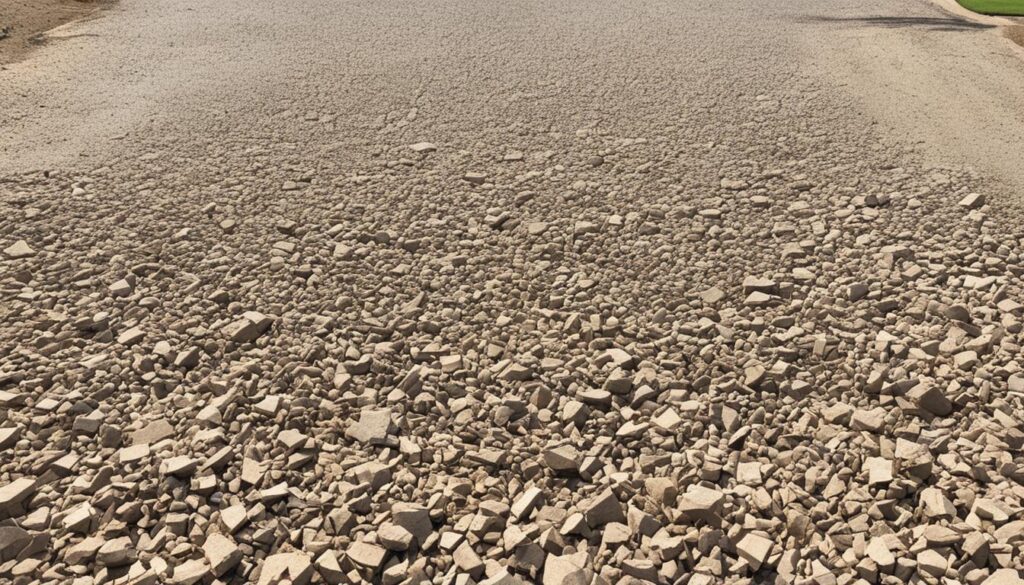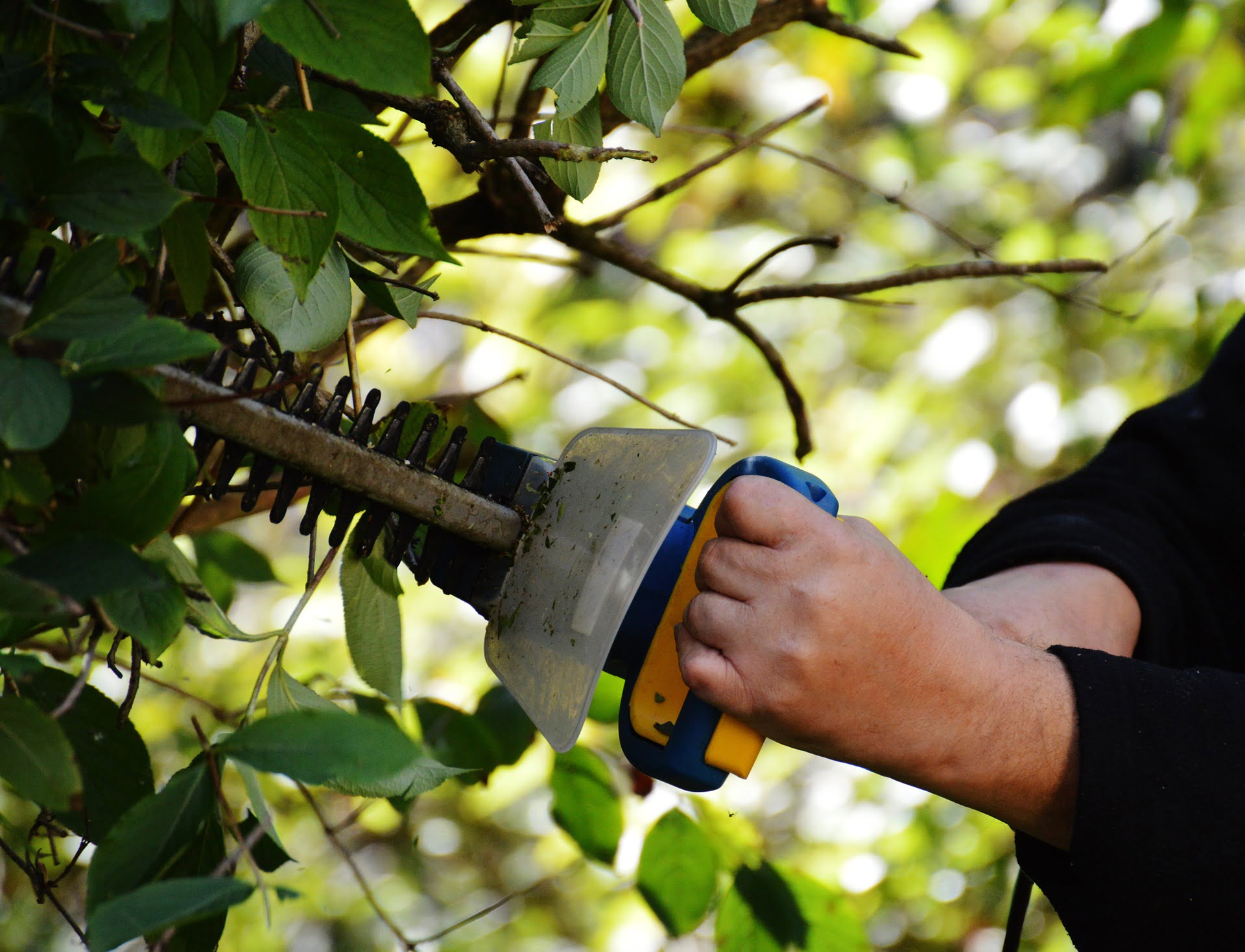When it comes to landscaping projects, many homeowners turn to decomposed granite as a cost-effective and visually appealing option. It’s no wonder why this material has gained popularity in recent years. However, while decomposed granite offers several advantages, it’s crucial to understand the disadvantages of using decomposed granite in your landscaping projects.
One of the primary concerns with decomposed granite is its vulnerability to erosion and shifting under certain conditions. It may seem stable at first, but heavy rain, fluctuating temperatures, and even foot traffic can cause the material to move and erode over time.
Additionally, proper installation is key when using decomposed granite. It requires meticulous compaction to ensure a firm and stable surface, which can be challenging for homeowners without professional experience.
Another consideration is the potential environmental impact of using decomposed granite. The extraction and production processes associated with this material can contribute to carbon emissions and other ecological concerns. It’s essential to evaluate the sustainability of your landscaping choices.
By understanding and considering these pitfalls, you can make an informed decision about whether decomposed granite is the right choice for your landscaping needs. While it offers affordability and natural beauty, it’s essential to weigh the disadvantages and determine if there are alternative materials that better suit your project’s requirements.
The Advantages and Disadvantages of Stabilized Decomposed Granite Fines
Stabilized decomposed granite fines offer homeowners a durable and stable landscaping material. Blended with a stabilizing agent, this variation of decomposed granite comes with its own set of advantages and disadvantages that you need to consider before making a decision.
Advantages:
- Affordability: Stabilized decomposed granite fines provide a cost-effective option for landscaping projects.
- Low maintenance: Once properly installed, this material requires minimal upkeep, saving you time and effort.
- Rustic appearance: Stabilized decomposed granite fines add a natural and charming look to your outdoor space, enhancing its overall aesthetic.
Disadvantages:
- Compromised under certain conditions: Heavy rain or extreme temperature swings can affect the stability and durability of the stabilized decomposed granite fines.
- Careful installation required: To ensure proper compaction and prevent future erosion, it is essential to follow the correct installation process.
- Potential environmental impact: Some stabilizing agents used in the process may have environmental implications, so it’s important to weigh this aspect.
Considering both the advantages and disadvantages, homeowners must evaluate whether stabilized decomposed granite fines align with their landscaping needs and preferences. Take into account factors such as local weather conditions, maintenance capabilities, and environmental concerns to make an informed decision.
Image: Advantages and Disadvantages of Stabilized Decomposed Granite Fines
Disadvantages of Decomposed Granite in Driveways
Decomposed granite is a popular choice for driveways due to its affordability and permeability. However, it is important to consider certain disadvantages that come with using decomposed granite for this purpose.
- Muddy conditions during rainy seasons: One disadvantage of decomposed granite driveways is their tendency to become muddy when exposed to rain. This can result in unsightly prints on the driveway surface and require additional maintenance to keep it clean and presentable.
- Potential for moss and weed growth: Shady areas in the driveway can provide the ideal conditions for the growth of moss and weeds, which can detract from the appearance of the driveway and require regular removal.
- Drainage concerns: Proper drainage is crucial for a functional driveway. When using decomposed granite for driveways, it is important to ensure that the paths are properly crowned to prevent standing water. Without adequate drainage, the driveway can become waterlogged and pose a problem.
- Lack of stabilization: Decomposed granite paths and driveways require proper stabilization to prevent issues such as spreading, rutting, and hardening over time. Without adequate stabilization, the decomposed granite may become impermeable and result in difficulty draining water.
To avoid these disadvantages, it is important for homeowners to carefully evaluate their specific needs and circumstances before choosing decomposed granite for their driveways. Consider factors such as the local climate, shade exposure, and desired maintenance level to make an informed decision. By weighing the advantages and disadvantages, you can determine whether decomposed granite is the right choice for your driveway.
Conclusion
When considering landscaping choices, it’s crucial to weigh the advantages and disadvantages of using decomposed granite. While this material offers affordability, natural aesthetics, and durability, there are potential pitfalls that homeowners should keep in mind.
One of the main concerns with decomposed granite is its vulnerability to erosion and shifting under certain conditions. Proper installation and maintenance are essential to ensure its long-term performance. It’s also important to consider the potential environmental impact of using decomposed granite, as some extraction methods may have adverse effects.
By carefully evaluating these factors, homeowners can make informed decisions about whether decomposed granite is the right choice for their landscaping needs. Alternatives to decomposed granite, such as stabilized decomposed granite or other materials, may be more suitable in certain situations. Ultimately, the decision should be based on individual preferences, budget, and the specific requirements of the project.
How can I protect my garden from chipmunks if I use decomposed granite in my landscaping?
If you are using decomposed granite in your landscaping, protecting your garden from chipmunks can be a challenge. One effective method is to install a metal mesh barrier around the perimeter of your garden to prevent chipmunks from digging and entering. Additionally, using natural repellents like garlic or pepper can help deter them.










